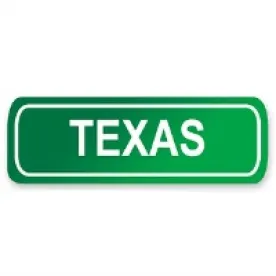Several federal agencies have issued reminders and requirements related to banking and credit services for borrowers affected by Hurricane Harvey. We previously reported on mortgage-related guidance issued by Fannie Mae, Freddie Mac, HUD, and VA regarding mortgage loans.
On August 26, the Office of the Comptroller of the Currency (OCC), the Board of Governors of the Federal Reserve System (FRB), the Federal Deposit Insurance Corporation (FDIC), and Conference of State Bank Supervisors (CSBS) issued a joint press release urging financial institutions in disaster areas to “work constructively with borrowers in communities affected by Hurricane Harvey.” The joint press release reminds financial institutions that they may receive Community Reinvestment Act (CRA) consideration for community development loans, investments, or services that revitalize or stabilize federally designated disaster areas. It also reminds banks to monitor municipal securities and loans affected by the hurricane, as government projects may be negatively affected. The joint press release also assures banks that regulators will grant flexibility in regulatory reporting and publishing requirements, and that regulators will expedite any request to operate temporary banking facilities.
Additionally, the agencies have adopted the following disaster relief policies:
FRB
The FRB published letter SR 13-6 on March 29, 2013 to highlight the supervisory practices it employs during a disaster. In general, the letter seeks to encourage covered banking organizations to adopt measures that help borrowers and other customers in communities under stress and that contribute to the health and recovery of these communities. Per the letter, the FRB will aim to assist in disaster relief efforts by easing the regulatory burden on banks. For example, the FRB may exercise its authority to waive real estate-related appraisal regulations, and may extend CRA consideration to activities that revitalize or stabilize a disaster area, even if the loans, investments, or services provided are to middle- or upper-income individuals. The FRB also published a webpage of resources following Hurricanes Katrina and Rita that may be applicable here.
FDIC
On August 29, the FDIC published Financial Institution Letter FIL-38-2017 (the “Letter”), which applies to all FDIC-supervised institutions, including community banks. The Letter encourages banks to “consider all reasonable and prudent steps to assist customers in communities affected by recent storms.” Specifically, the FDIC suggests waiving fees, increasing ATM cash limits, easing credit card limits, allowing loan customers to defer or skip payments, and delaying the submission of delinquency notices to credit bureaus. The Letter also suggests that banks use the non-documentary verification methods permitted by the Customer Identification Program requirement of the Bank Secrecy Act for affected customers who cannot provide standard identification documents.
The FDIC has also set up a webpage dedicated to Hurricane Harvey information for consumers and bankers. That webpage links to a document created for institutions supervised by FFIEC member agencies and the Conference of State Bank Supervisors that discusses the lessons they learned from the effects of Hurricane Katrina.
The webpage includes resources for consumers including Hurricane Harvey FAQs, disaster planning assistance, and a disaster recovery to-do list.
OCC
On August 24, the OCC issued a Proclamation that permits national banking associations, federal savings associations, and federal branches and agencies of foreign banks to close offices in the areas affected by the emergency conditions for as long as deemed necessary for bank operation or public safety. The Proclamation also referred to OCC Bulletin 2012-28, which sets forth previous bank guidance applicable to natural disasters (the “Bulletin”). For the purposes of disaster relief, the Bulletin persuades banks to consider assisting affected borrowers by, among other things, waiving or reducing ATM fees, and restructuring borrowers’ debt obligations.
Banks should also consider previously issued OCC guidance that may be applicable in the event of a disaster. For example, OCC Bulletin 2014-37 provides that a bank must halt all debt sales on accounts of customers in disaster areas. According to FEMA declarations, this debt sales moratorium should have started on August 23 for affected counties in Texas, and on August 27 for Louisiana.
Farm Credit Administration (FCA)
On August 29, the FCA issued a press release encouraging Farm Credit System institutions to extend the terms of loan repayments, restructure borrowers’ debt obligations, ease some loan documentation or credit-extension terms for new loans to certain borrowers, and seek FCA relief from specific regulatory requirements.
National Credit Union Administration (NCUA)
On August 25, in a press release, the NCUA reminded credit unions that its Office of Small Credit Union Initiatives can provide urgent needs grants of up to $7,500 to low-income credit unions that experience sudden costs to restore operations interrupted by the storm.
On August 28, the NCUA announced that there were 150 federally insured credit unions in the areas of Texas affected by Hurricane Harvey and approximately 28 credit unions in the areas of Louisiana affected by the storm. To help these credit unions, the NCUA stated that its disaster assistance policy was to:
- Encourage credit unions to make loans with special terms and reduced documentation to affected members;
- Guarantee lines of credit for credit unions through the National Credit Union Share Insurance Fund;
- Make loans to meet the liquidity needs of member credit unions through the Central Liquidity Facility; and
- Reschedule routine examinations of affected credit unions.
Under certain conditions, the NCUA permits federal credit unions to assist other credit unions and non-members by using their correspondent services authority to provide emergency financial services, including check cashing, access to ATM networks, or other services to meet short-term emergency needs of individuals in the areas affected by the floods. The NCUA notes that if a credit union provides such emergency services, it may not impose charges for such services that exceed its direct costs.
In addition to following the guidance above, in the absence of applicable exemptions or waivers granted by regulators, financial institutions wherever located must continue to comply with consumer protection and other banking laws. In particular, financial institutions serving communities impacted by Hurricane Harvey should remain mindful of anti-money laundering, suspicious activity reporting, data security, and privacy requirements.



 />i
/>i

